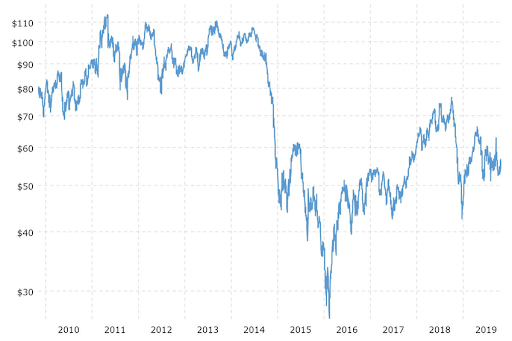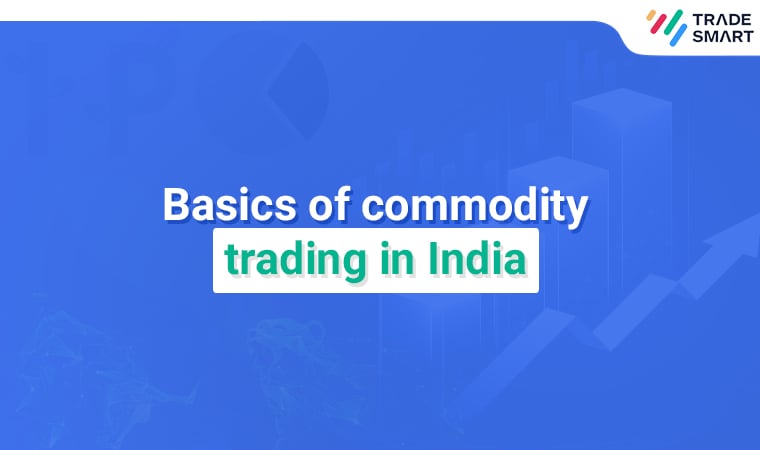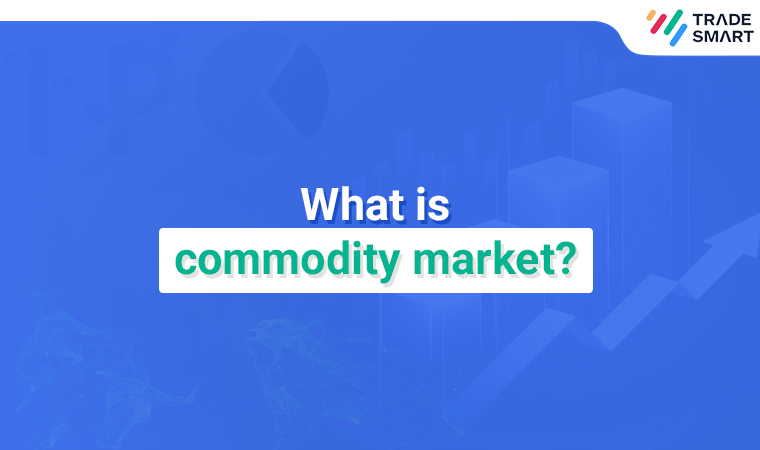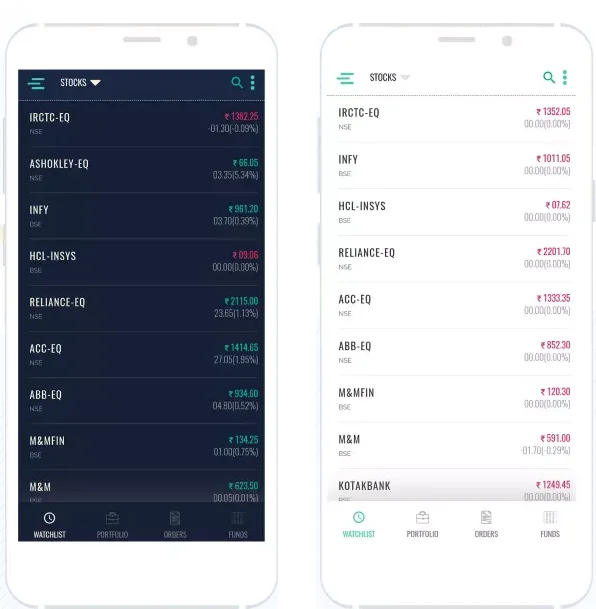Just like equities there is an active market for commodities and currencies. Globally, commodities and currencies are much bigger market than equities.
Just like how shares are bought and sold in the stock market, commodities are bought and sold in the commodity market. A Commodity market is a market where various commodities and their derivatives products are transacted in. A commodity could be any raw material or primary agricultural product that is marketable, that is, it can be bought or sold. It could be wheat, gold, or crude oil, among many others.
Types of commodities traded in India
In general, there are broadly four categories in the commodities market:
- Metals (gold, silver, platinum, copper, among others)
- Energy (crude and heating oil, natural gas and gasoline)
- Agricultural produces like corn, soybeans, wheat, rice, cocoa, coffee, cotton, etc)
The table below gives a list of all the commodities that are traded
| Metal |
Aluminium, Copper, Lead, Nickel, Sponge Iron, Steel Long (Bhavnagar), Steel Long (Govindgarh), Steel Flat, Tin, Zinc |
| Bullion |
Gold, Gold HNI, Gold M, i-gold, Silver, Silver HNI, Silver M |
| Fiber |
Cotton L Staple, Cotton M Staple, Cotton S Staple, Cotton Yarn, Kapas |
| Energy |
Brent Crude Oil, Crude Oil, Furnace Oil, Natural Gas, M. E. Sour Crude Oil |
| Spices |
Cardamom, Jeera, Pepper, Red Chilli, Turmeric |
| Plantations |
Arecanut, Cashew Kernel, Coffee (Robusta), Rubber |
| Pulses |
Chana, Masur, Yellow Peas |
| Petrochemicals |
HDPE, Polypropylene(PP), PVC |
| Oil & Oil Seeds |
Castor Oil, Castor Seeds, Coconut Cake, Coconut Oil, Cotton Seed, Crude Palm Oil, Groundnut Oil, Kapasia Khalli, Mustard Oil, Mustard Seed (Jaipur), Mustard Seed (Sirsa), RBD Palmolein, Refined Soy Oil, Refined Sunflower Oil, Rice Bran DOC, Rice Bran Refined Oil, Sesame Seed, Soymeal, Soy Bean, Soy Seeds |
| Cereals |
Maize
Guargum, Guar Seed, Gurchaku, Mentha Oil, Potato (Agra), Potato (Tarkeshwar), Sugar M-30, Sugar S-30 |
India has had a long history of commodity trading with its own share of ups and downs, it has, however, grown exponentially, since the introduction of favourable laws.
The derivative market in commodity trading came into operations as a means to protect the buyers and producers from price fluctuations over time. For example, a farmer worried about the future price of his wheat in the market can use a commodity derivative to hedge and mitigate his risk. Similarly, airline companies worried about the price of fuel too can use Oil futures to mitigate this risk. These traders could opt for actual physical delivery of the commodities upon expiry.
Likewise, people who have no exposure in the underlying too could trade in the commodity market to make profits. This type of trader is called a speculator. They participate in order to profit from the volatile price movements.
Commodities, like any other asset class, are traded in exchanges and regulated by SEBI.
Commodity Exchanges in India
Just like how the stock market has the BSE and NSE, the commodity exchanges present in India are:
- Multi Commodity Exchange – MCX
- National Commodity and Derivatives Exchange – NCDEX
- National Multi Commodity Exchange – NMCE
- Indian Commodity Exchange – ICEX
- Ace Derivatives Exchange – ACE
- The Universal Commodity Exchange – UCX
The trading of commodities in the commodity market is regulated by SEBI and facilitated by MCX. The MCX provides a platform for trading in stocks. More than 100 commodities are traded in the Indian Commodity futures markets. Gold, Crude Oil, Copper, Nickel etc. are some of the popularly traded commodities. Of the above, the first three are the most popular exchanges with huge volumes of trade activity.
There are also many new index funds and mutual funds like Gold Exchange Traded funds which can be invested in if one is willing to invest in the commodities market.
How does the commodity market work?
This can be best explained with the help of an example. Let’s say you bought a silver futures contract on MCX at Rs. 60,000 for every 100gm. The margin of Silver is 3% on the MCX. So basically you will be paying Rs. 1,800 for the silver. Now let’s assume that on the following day, the cost of silver increases to Rs. 63,000 per 100gms. In this case, Rs. 3000 will be credited to your account. But if the price drops to Rs. 57,000 then Rs. 3000 will be debited accordingly.
Benefits of trading in Commodity Market
As with any market investment, the commodities market too has its own share of pros and cons. The pros are increased potential returns, diversification, and an effective hedge against inflation risk. But there also exist a number of disadvantages especially the huge volatility and speculative risk in this market.
- Diversification – the performance of the commodity market is inversely related to the performance of the stock market. This is because some outside factors like inflation which impacts the stock market may benefit the commodity market since the price of commodities go up when the inflation also goes up. Having investment in this will certainly help protect against risk from the stock market.
- Real Returns – While some goods remain relatively stable, some commodities are extremely volatile. Agriculture commodities for instance will give a good return in case of bad monsoon, similarly at times of war crude oil and gold tends to outperform a other asset class.
- Margin Trading – When trading in futures, the margin paid in commodity futures is lesser than the margin paid in the stock market exchange. This helps traders benefit from bulk orders and earn larger profits.
Cons of trading in commodity market
- High Risk – Due to its volatility, there is high risk involved in trading as well. If you have invested in a certain commodity and the demand for the commodity changes then that can affect the price and hurt your profits significantly.
- High Leverage – With an average of 3-6 percent as margin, commodities is a highly leveraged market. A wild swing can blow up a traders account easily.
Commodity Market vs Stock Market – The difference
Here is a quick reference table to chart out the difference between the stock market and the commodity market.
| Particular |
Commodity Market |
Equity Trading |
| Nature of the product |
Products that are consumed in everyday life |
Stocks or equities that represent ownership |
| Ownership |
Normally ends with the buyer taking the physical product but can also be cash-settled |
Owning shares gives you ownership in a company |
| Duration |
Normally traded for very short durations |
Can be held for both short and long durations |
| Purpose |
To speculate against price fluctuations of the underlying assets |
To create long-term wealth and capital appreciation |
| Volatility |
Are extremely volatile |
Are less volatile compared to commodity trading |
| Margin |
Are traded on margins and high leverage |
Not necessarily traded on margins but has the option to do so |
| Trading Hours |
Trading on the MCX takes place between 9am to 11:55pm |
Trading takes place between 9:15am to 3:30pm |
Commodity Trading charges
When you open a demat account in the stock market and conduct trades, there are certain charges involved in ensuring that the trade is conducted smoothly. In the same way in commodity trading, there are certain charges given by the DP. Commodities in the commodity are most widely traded in futures and options and hence the charges offered by TradeSmart is given below
| TradeSmart Charges |
MCX Futures |
MCX Options |
| Brokerage |
Rs. 15/trade |
Rs. 15/trade |
| STT |
Rs. 1000/crore |
Rs. 5000/crore |
| Turnover Charges |
Rs. 390/crore |
Rs. 2000/crore of premium |
| GST |
18% on (Brokerage + Transaction Charge) |
18% on (Brokerage + Transaction Charge) |
| SEBI charges |
Rs 10/Crore (Sebi Fees for MCX Agri Commodities is Rs 1 for Rs 1 Crore turnover) |
Rs 10/Crore |
| Stamp charges |
State wise |
State wise |
How to invest in commodities?
Commodity trading is not the only way to invest in commodities in India. There are other means by which you can get involved in the commodity market and those points are given below.
- Physical commodity
- Commodity ETF
- Commodity Mutual funds
- Commodity options
- Commodity futures
Physical commodity – This refers to actually physically buying the commodity for yourself and keeping it and them selling it in the future. But the main issue here the storage and high logistic costs which will eat into the returns generated later on. Commodities like Gold are still traded this way even today.
Commodity ETF – Commodity Exchange Traded Funds are passively managed funds that invest in physical commodity and futures contracts and are traded on real-time basis. This helps investors in benefitting from the price changes and not worrying about the physical and liquidity issues of the commodity
Commodity Mutual Funds – These are mutual funds which are invested in the mutual fund ETFs.They offer diversification since fund manager is investing their money in multiple commodities and at the same there is no risk of liquidity of the commodity.
Commodity Options – in the case of commodity options, the buyer has the right to buy but not obligated to execute the contract in the future. In the commodity market, the MCX offers commodity options in Gold, Silver, Crude Oil and Zinc and the NCDEX exchange offers options in soya bean, soya refined oil, guar seed, guar gum, chana etc.
Commodity futures – This is situation where the buyer and seller of the commodity get into a contract to trade the commodity at an agreed price on a pre-determined date in the future. Unlike options, both parties have to honour their contract. Commodity futures are available on petrol, gold, silver, natural gas, wheat etc/
In conclusion
Trading in commodities is a great way to tackle inflation and is a hedge on the stock market since it is inversely related to the stock market. Since it is a highly leveraged market, one should be cautious in trading in commodities.




